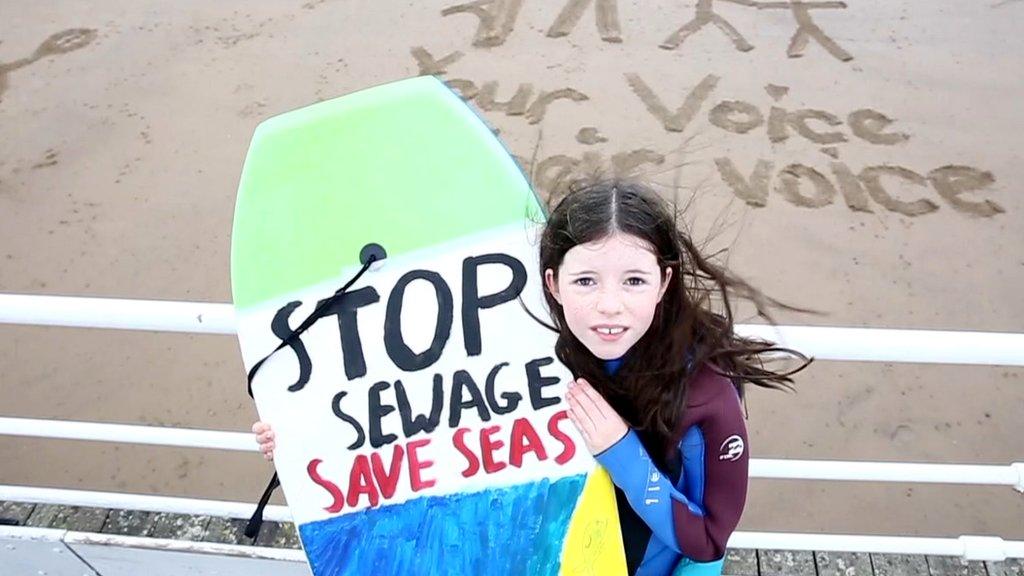Sewage warning for Teesside beaches as mayor says 'stay away'
- Published
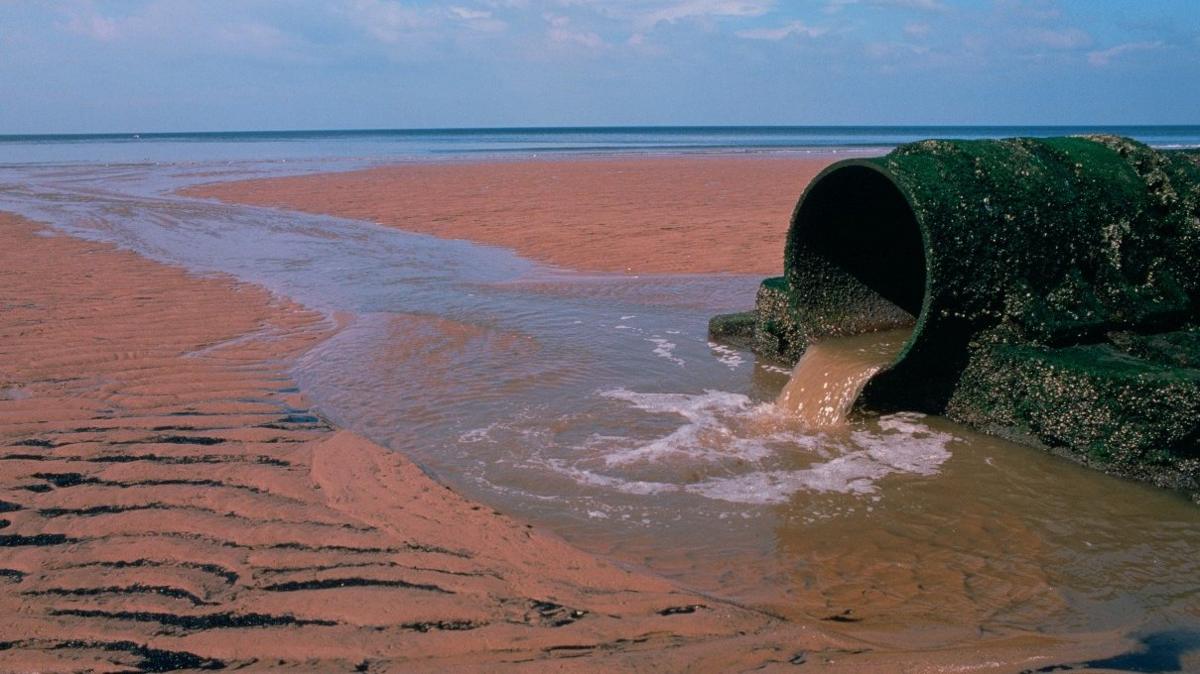
Pollution risk warnings are in place for Redcar, Marske Sands and Saltburn-by-the-Sea
People should stay away from Teesside's beaches because sewage is "being pumped into the sea", Middlesbrough's mayor has warned.
Andy Preston said the discharges were "totally unacceptable" and called on Northumbrian Water to fix it.
The company said it has "invested heavily in upgrades to our wastewater network in the last two decades".
It comes after water firms were accused of failing to monitor sewage releases at popular UK seaside resorts.
The mayor said he had been made aware of raw sewage being discharged into the sea along the Tees coastline at the weekend, but it was not the first occasion it had happened.
'Rouse the public'
"It's never a good time to tell people to stay away from the coast, especially in the summer when our beaches are busy with people on holiday," Mr Preston said.
"Families and dog walkers need to be aware of risks and I need to raise public awareness about it.
"I cannot do anything directly but I can rouse the public to get Northumbrian Water to fix it.
"All I want to do is get people to put pressure on water companies, as I really don't think such big profit-making businesses are under enough pressure."
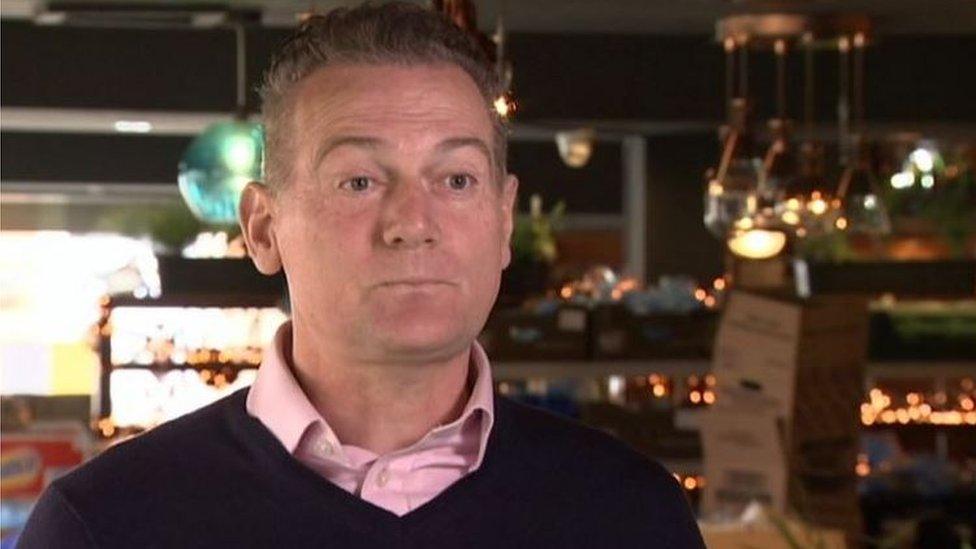
The Middlesbrough mayor said sewage going into the sea was "totally unacceptable" and he wanted to warn the public
The Safer Seas & Rivers Service, external app - which monitors the water quality around the UK - advised of pollution risk warnings in place for Coatham Sands and the Lifeboat station in Redcar, Marske Sands and Saltburn-by-the-Sea.
It says storm sewage has been discharged from sewer overflows within the past 48 hours, which can affect water quality especially after heavy rainfall.
Storm overflows are safety valves built into the sewerage system to discharge excess into rivers, lakes, or the sea when rainfall exceeds capacity.
Neil Cutts, an activist from Surfers Against Sewage, said overflows around the UK are happening on almost a weekly basis and not just when there is heavy rainfall.
He said water companies should put more filters onto the outfall pipes and claimed the main issue is underfunding to fix the problems.
"The water companies need to step up and say: 'Yeah, we're wrong here and we need to do something about it'", he said.
Allow X content?
This article contains content provided by X. We ask for your permission before anything is loaded, as they may be using cookies and other technologies. You may want to read X’s cookie policy, external and privacy policy, external before accepting. To view this content choose ‘accept and continue’.
Northumbrian Water said more than £80m had been allocated for improvements to storm overflows up until 2025.
A representative of the company said: "During heavy rainfall, all water companies use storm overflows which act as a relief valve on the sewer network to protect the homes of customers and the environment from sewer flooding.
"Such discharges happen with permission from the Environment Agency and are mostly rainwater with a small percentage of wastewater that have come together because they use the same sewer network."
Northumbrian Water also said beaches along the Tees coast were ranked in the highest categories in the last bathing water quality statistics released by the Department of Environment, Food and Rural Affairs.
It said 32 of the North East's 34 designated bathing waters had achieved ratings of either 'excellent' or 'good'.
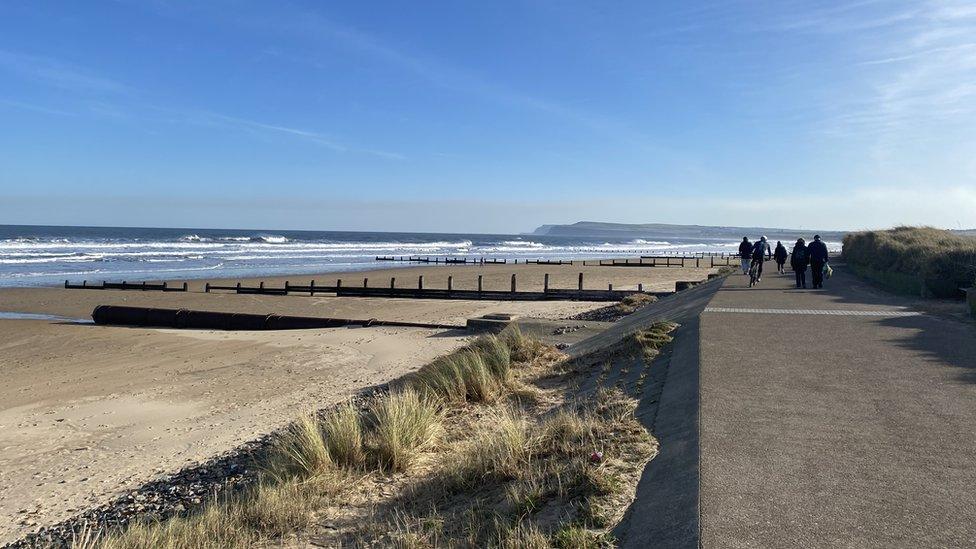
Coatham Sands in Redcar is one of four locations along Tees coast with a pollution risk warning in place
The government insisted water companies were responsible for reducing sewage discharges after Labour accused it of having its "head in the sand" over the state of Britain's beaches.
Amid growing calls for ministers to clamp down on those contributing to pollution, Number 10 said it was the duty of firms to put customers before shareholders.
"We have been clear that the failure of water companies to adequately reduce sewage discharges is completely unacceptable," a Downing Street spokeswoman said.

Follow BBC North East & Cumbria on Twitter, external, Facebook, external and Instagram, external. Send your story ideas to northeastandcumbria@bbc.co.uk, external.
- Published22 August 2022
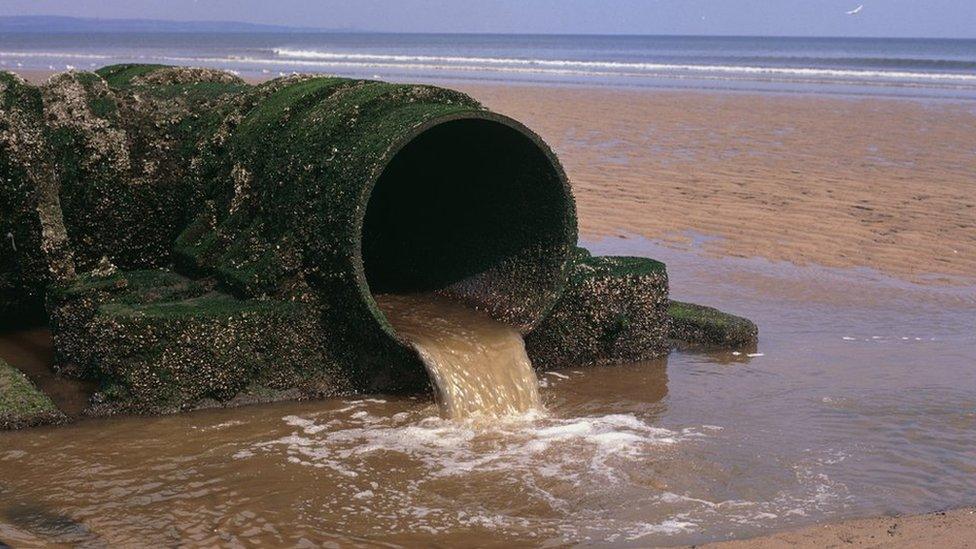
- Published17 August 2022
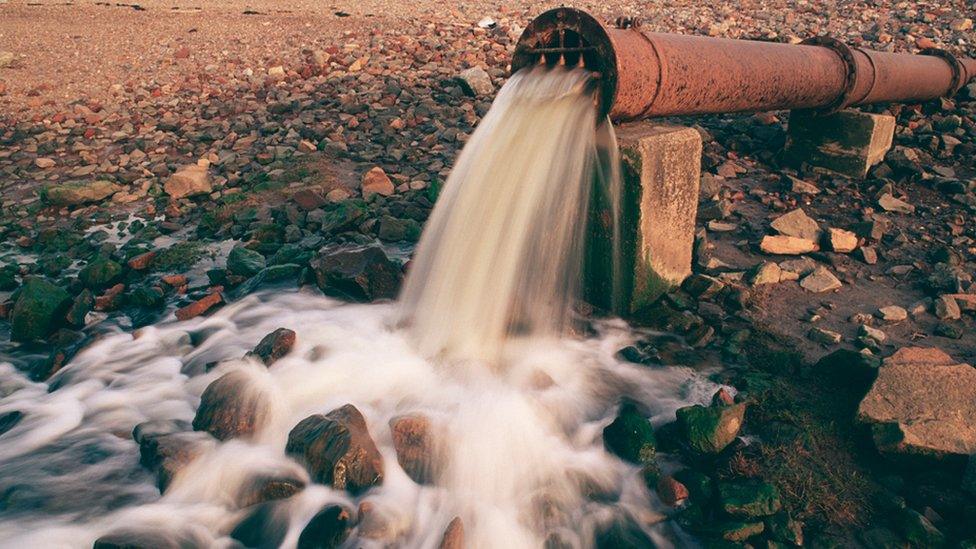
- Published18 August 2022
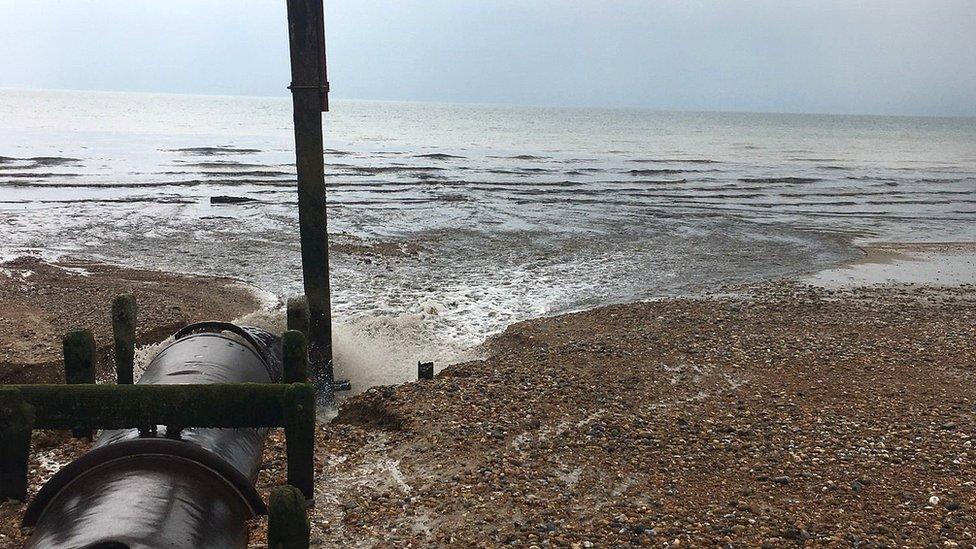
- Published6 November 2021

- Published25 November 2021
